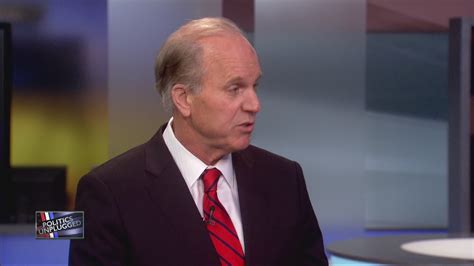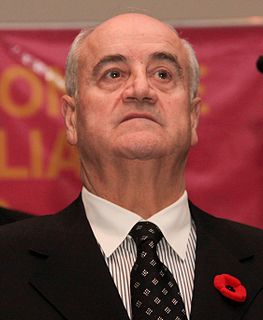A Quote by Warren Buffett
Our investments continue to be few in number and simple in concept: The truly big investment idea can usually be explained in a short paragraph. We like a business with enduring competitive advantages that is run by able and owner-oriented people. When these attributes exist, and when we can make purchases at sensible prices, it is hard to go wrong (a challenge we periodically manage to overcome).
Related Quotes
But, surprise - none of these blockbuster events made the slightest dent in Ben Graham's investment principles. Nor did
they render unsound the negotiated purchases of fine businesses at sensible prices. Imagine the cost to us, then, if we had let a fear of unknowns cause us to defer or alter the deployment of capital. Indeed, we have usually made our best purchases when apprehensions about some macro event were at a peak. Fear is the foe of the faddist, but the friend of the fundamentalist.
There is no doubt that the Fed's large-scale asset purchases have caused major increases in a number of asset prices in the economy. This is especially true of mortgage backed securities and corporate bonds, and quite possibly of equities as well. For those people and institutions holding those things, the run up in prices has been a wealth bonanza.
We believe that almost all really good investment records will involve relatively little diversification. The basic idea that it was hard to find good investments and that you wanted to be in good investments, and therefore, you'd just find a few of them that you knew a lot about and concentrate on those seemed to me such an obviously good idea. And indeed, it's proven to be an obviously good idea. Yet 98% of the investing world doesn't follow it. That's been good for us.
In many parts of our country, geography and population density can make it difficult to attract private investment. These communities depend on federal investments to maintain and upgrade their transportation systems and stay competitive. And we know that it's an investment worth making. Because when rural America succeeds, we all do.
Charlie and I decided long ago that in an investment lifetime, it's too hard to make hundreds of smart decisions. That judgment became ever more compelling as Berkshire's capital mushroomed and the universe of investments that could significantly affect our results shrank dramatically. Therefore, we adopted a strategy that required our being smart and not too smart at that, only a very few times. Indeed, we now settle for one good idea a year.
Simplicity is the ultimate sophistication. It takes a lot of hard work to make something simple, to truly understand the underlying challenges and come up with elegant solutions. [...] It's not just minimalism or the absence of clutter. It involves digging through the depth of complexity. To be truly simple, you have to go really deep. [...] You have to deeply understand the essence of a product in order to be able to get rid of the parts that are not essential.
The one thing that I think separates Microsoft from a lot of other people is we make bold bets. We're persistent about them, but we make them. A lot of people won't make a bold bet. A bold bet doesn't assure you of winning, but if you make no bold bets you can't continue to succeed. Our industry doesn't allow you to rest on your laurels forever. I mean, you can milk any great idea. Any idea that turns out to be truly great can be harvested for tens of years. On the other hand, if you want to continue to be great, you've got to bet on new things, big, bold bets.
I'm going to be working the next 25 or 30 years. People like me, if we want, number one, for no benefit reductions for our parents and our grandparents, number two, for the system to survive and exist for us, and, more importantly, number three, for the system to exist for us children, we are going to have to make reforms to that system.
Our government's investments in science, technology and innovation are ensuring that ideas move from the lab to the marketplace faster, creating jobs and opportunities for Canadians. Through our investment in Mitacs Elevate, we are providing training and new career opportunities for talented researchers while ensuring that local businesses such as Vision Extrusions stay competitive and continue to create jobs here in Woodbridge.
In a large pharmaceutical company, where it's a big bet, you're going to need finance people to be involved in the decision-making because the investment can run into the hundreds of millions of dollars. You're going to have to run scenarios. You might even need agreement from the C.E.O. to make that type of decision. If it's an incremental, low-cost decision in a marketing-oriented company, it may be a very different set of stakeholders a lot further down in the organization.






























